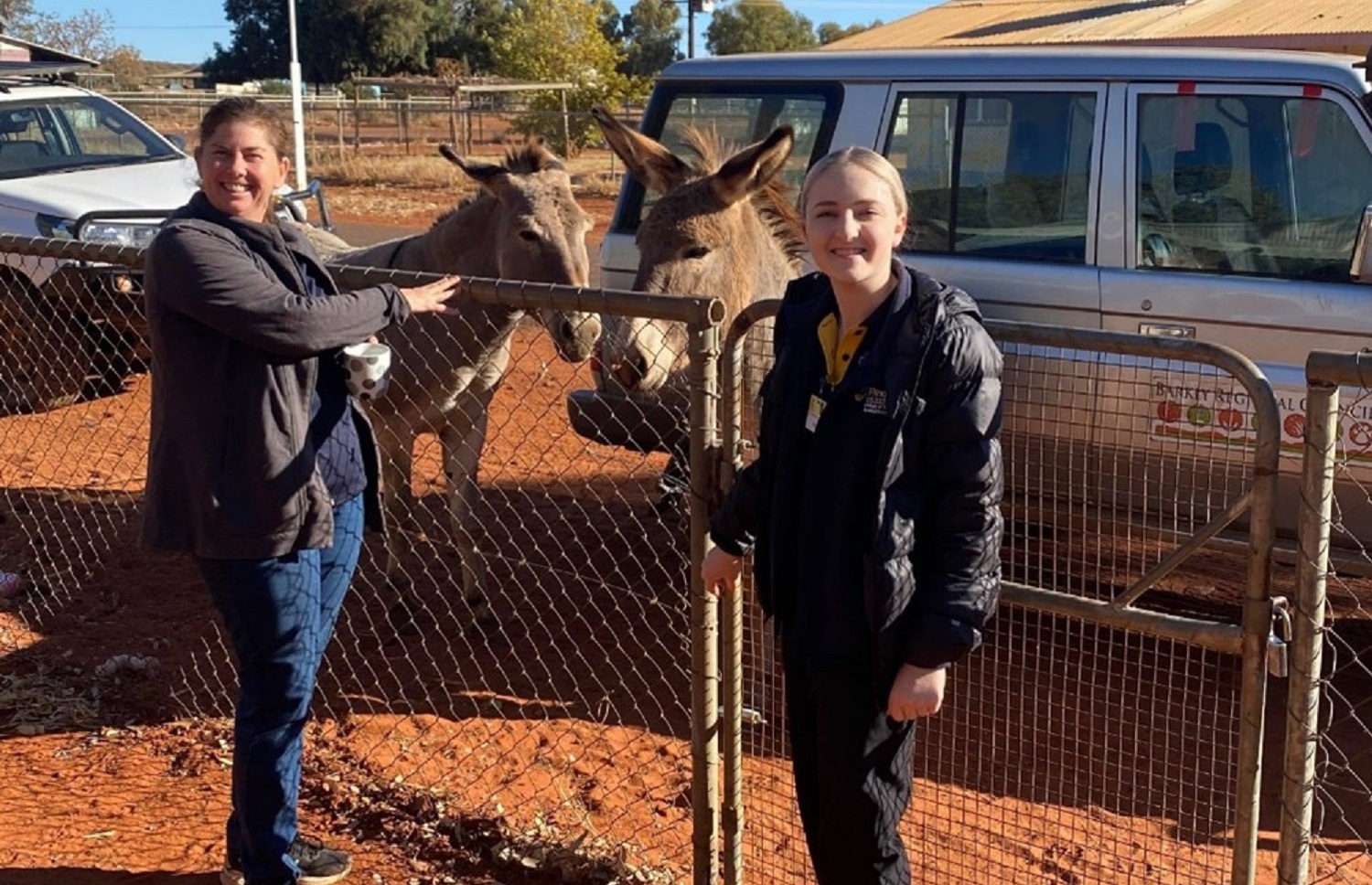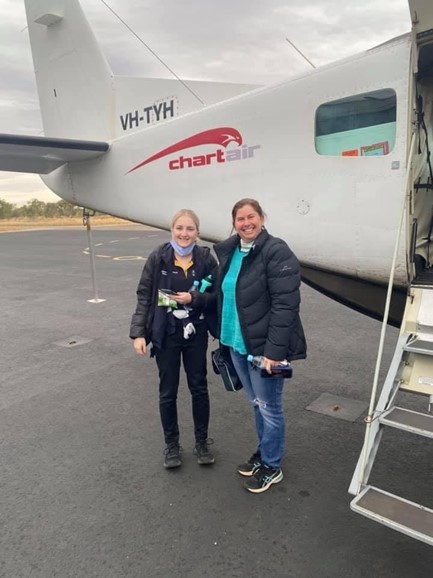
OT student Jordyn Iovino shares her experiences on placement at multidisciplinary clinic Desert Therapy in the Northern Territory.
By Jordyn Iovino
Prior to beginning my Masters of Occupational Therapy degree, I researched the vast experiences that Flinders University offered through their placements.
When I heard about the possibility of being able to perform a placement in the Northern Territory, I immediately signed my name up and consistently approached my topic coordinators to consider me for this placement. Growing up in the Riverland I understood some of the practices in rural communities and the close relationships which form in these smaller towns.
After moving to Adelaide in my late teens, I knew I wanted to experience a rural placement and be able to provide wel- needed healthcare to rural and remote communities.
Fortunately enough, I was offered a placement in Alice Springs at multidisciplinary practice Desert Therapy. The multidisciplinary team were highly encouraging towards furthering my professional knowledge and supporting me to develop my knowledge on Indigenous culture.
The Alice Springs-based clinic works with a range of clients funded by the NDIS scheme or My Aged Care, from paediatric through to aged care clients. The well-equipped, highly knowledgeable and friendly team is made up of a range of occupational therapists, speech pathologists and physiotherapists.
A key learning experience throughout this placement was the opportunity to attend the Introduction to Central Australian Aboriginal Culture and Context Day, run by Flinders Rural and Remote Health in Alice Springs.
This day was pivotal in developing my cultural awareness and practicing cultural safety for the remainder of my placement.

I learnt about the dynamic historical structures that form the Aboriginal culture and this allowed me to understand the factors in rural or remote communities that influence Aboriginal health. I was able to interact and socialise with many other students from other disciplines who were on placement in Alice Springs.
I was also able to attend events around Alice Springs and travel to the West MacDonnell Ranges and Uluru with these students.
What drew me to this placement is the vast range of clients and opportunities to provide care not only within Alice Springs but also in very remote communities. This was something I had never experienced and would have never experienced without the opportunity provided at Desert Therapy.
During our ‘bush block’ the Desert Therapy team would split up to visit their allocated communities. I was fortunate enough to fly with my supervisors to Wingellina (on the WA Border) and luckily over the top of Uluru and Kata Tjuta! Here I spent a week with the team living at a miner’s camp and travelling to various communities on the WA/SA border.
Following this, we repacked the cars and drove through many dirt roads to Ampilatwaja, north of Alice Springs, where we spent the week visiting clients in the surrounding communities. I was also able to travel to the Desert Therapy’s Tennant Creek clinic and provide occupational therapy services in a smaller remote town.
During the remote visits I worked with a range of clients that allowed me to develop many new skills. These included recognising the importance of Indigenous culture and adapting my practice to be more culturally aware.
This experience has helped me develop my culturally responsive communication skills and practice. Due to the consistent changing of environments and fast paced sessions, this has allowed me to use the knowledge of other multidisciplinary team members to collaboratively develop reports and formalise clinical reasoning quickly for very remote clients.
All my experiences in the NT have shaped who I am as an occupational therapist today and given me skills that I may not have gained in Adelaide. I hope that upon finishing my degree this year that I can return to provide more health care to these remote communities in Alice Springs!

